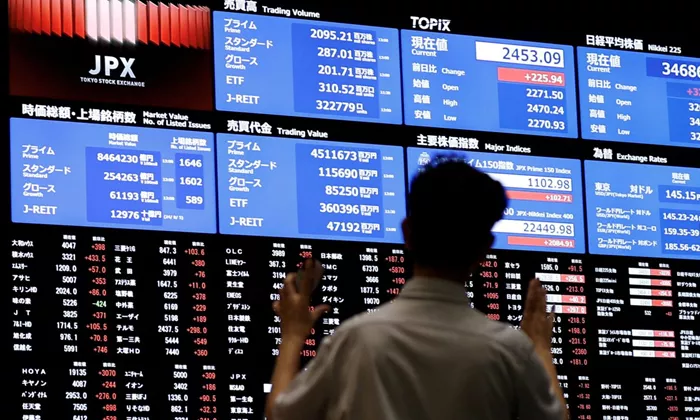Asian stock markets edged up on Wednesday, supported by gains in technology shares, while the U.S. dollar hovered near six-week lows. Investors prepared for the U.S. to raise tariffs on steel and aluminum imports, intensifying ongoing trade tensions that have unsettled markets throughout the year.
South Korea’s stock index, KOSPI, surged more than 2% to its highest point since August 2024. This followed the election victory of liberal presidential candidate Lee Jae-myung, which boosted hopes for rapid economic stimulus, market reforms, and reduced policy uncertainty.
The broader MSCI index of Asia-Pacific shares outside Japan rose about 0.6%. Japan’s Nikkei climbed 0.8%, and Taiwan’s market jumped 1.6%, helped by strong performance in U.S. tech stocks led by Nvidia.
U.S. economic data showed job openings increased in April, but layoffs also rose, signaling a cooling labor market amid tariff impacts. Investors focused on a possible conversation this week between U.S. President Donald Trump and Chinese President Xi Jinping, as trade tensions remain high.
Trump recently accused China of violating a Geneva agreement on tariffs, a claim Beijing denied, promising to protect its interests.
Trump’s surprise executive order raised steel and aluminum tariffs from 25% to 50%, effective Wednesday. Experts see these tariffs as a sign of more strategic tariffs to come, limiting momentum for a U.S. dollar rally.
The dollar weakened against the yen and Swiss franc, while the euro gained slightly. The dollar index stayed near its six-week low, down 8.5% for the year.
Commodity prices reflected global economic concerns. Oil prices fell slightly due to increased OPEC+ output and trade worries. Brent crude was at $65.59 per barrel, and U.S. West Texas Intermediate crude at $63.35. Gold rose 0.5% to $1,369.59 per ounce, benefiting from safe-haven demand amid market uncertainty.
Read more:


